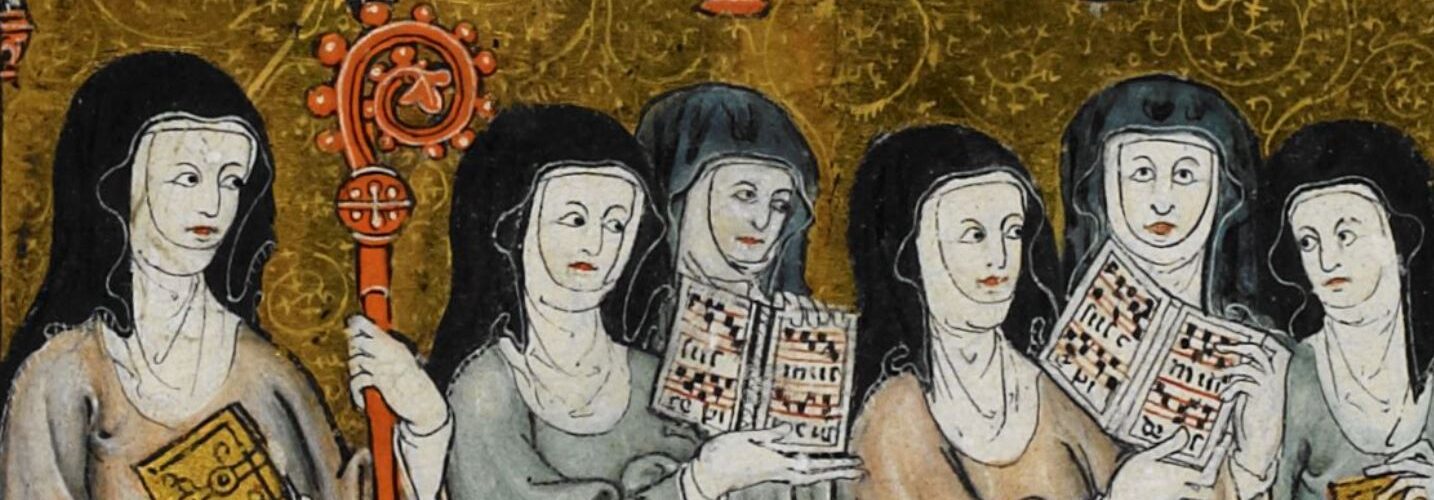Cantus Planus
Of all musical repertories, sacred song or chant occupies a unique position resulting from both its supraregionality and longevity. Specific corpora of chants were transmitted across cultural and linguistic boundaries and myriad forms of notation were created to record texted and textless melodies. Surviving war, destruction, looting, famine and plague, many thousands of manuscripts, fragments, incunabula and prints dating from the 9th century CE onwards are now housed in libraries and institutions right around the world; and aspects of these earliest repertories are still cultivated today as a living practice in religious buildings, domestic settings, concert venues, schools, conservatories and universities. In the course of a long and often turbulent history, sacred song has functioned as a political instrument; as a site of contested identity and belief; as a vehicle for individual vocal virtuosity; and as a social practice embedded in the rhythms of life and faith in local communities.
History of the Study Group
Taking up an initiative of the Directorium of the IMS in the early 1980s, Cantus Planus was a pioneering attempt to bring together chant researchers from both sides of the then Iron Curtain. The first meeting was held in Veszprém, Hungary, in 1984 and the study group has significantly benefitted over the years from the commitment and energy of colleagues from Central Europe. It remains part of the vision of Cantus Planus as an international study group to encourage cooperation in new areas, e.g. West Balkans and Ukraine. Indeed, the cultural span and scope of chant research has expanded considerably since the study group was first formed, incorporating new interests in manuscripts, prints and fragments – sometimes the results of biblioclasm – in North America and Australia as well as, for example, the history of chant in missions in Taiwan, musical notations in Buddhist traditions in Japan and a project on teaching Coptic liturgical chant to diaspora communities in New Jersey.
Meetings, Events, Mailing List
Members of Cantus Planus meet at the quinquennial congress of the IMS and at special conferences organised for the study group itself, usually held every two years. There are often panels and informal gatherings of Cantus Planus members at other larger conferences e.g. American Musicological Society, MedRen, Kalamazoo, Leeds etc. The study group held its first Digital Research Forum in July 2021 and hopes to continue with this format on a regular basis as a means of showcasing current research.
The study group also runs a mailing list which gives information about special lectures, conferences, new publications and job opportunities. It can be found in the news section of this website.
Chair and Advisory Board Members
Jeremy Llewellyn, University of Vienna (Chair)
Hana Vlhová-Wörner, Czech Academy of Sciences, Prague, and University of Basle (Vice-Chair)
Alison Altstatt, University of Northern Iowa
Christelle Cazaux, Schola Cantorum Basiliensis FHNW
Zsuzsa Czagány, Hungarian Academy of Sciences, Budapest
David Andrés Fernández, Universidad Complutense Madrid
Alexander Lingas, City, University of London
Karin Strinnholm Lagergren, Linnaeus University and Alamire Foundation, Leuven
Rebecca Maloy, University of Colorado
Former Chairs
Helmut Hucke†, Hochschule für Musik und darstellende Kunst, Frankfurt
David Hiley, University of Regensburg
Ruth Steiner†, Catholic University of America, Washington
Charles Atkinson, The Ohio State University, Columbus and University of Wurzburg
Barbara Haggh-Huglo, University of Maryland
Roman Hankeln, NTNU Norwegian University of Science and Technology
James Borders, University of Michigan
 Cantus Planus
Cantus Planus